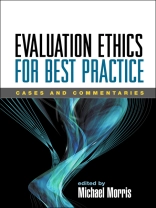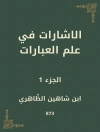Focusing on ethical challenges in program evaluation, this innovative book features six case-study scenarios that end at a point where the evaluator faces a significant decision about how to proceed. For each case, two distinguished evaluators offer insights on the best course of action to choose, and why. ‘What If?’ boxes modify the details of the scenarios, inviting readers to reflect on whether these changes alter the ethical implications of the case. Six additional cases are presented with questions that guide readers to develop their own ethical analyses. The book is organized to follow the progress of an evaluation, from the entry/contracting phase through the utilization of results.
Jadual kandungan
1. Ethics and Evaluation 2. The Entry/Contracting Stage Scenario 1: The Coordination Project Commentary: Consumers, Culture, and Validity, Karen E. Kirkhart Commentary: Whose Evaluation Is It, Anyway?, David M. Chavis What If…?Final Thoughts: The Coordination Project Scenario 2: Just Say No?Questions to Consider3. Designing the Evaluation Scenario 1: The Damp Parade?Commentary: Everybody Talks about the Weather…, Melvin M. Mark Commentary: No Rain Today, Gail V. Barrington What If…?Final Thoughts: The Damp Parade Scenario 2: What’s under the Rock?Questions to Consider4. Data Collection Scenario 1: The Folder Commentary: Hold ’Em or Fold(er) ’Em?: What’s an Evaluator to Do?, Michael Hendricks Commentary: Centering the Folder, sarita davis What If…..?Final Thoughts: The Folder Scenario 2: Hideout Questions to Consider5. Data Analysis and Interpretation Scenario 1: Knock, Knock, What’s There?Commentary: What’s There: Confidence or Competence?, Leslie J. Cooksy Commentary: Interpreting Effects, William R. Shadish What If…?Final Thoughts: Knock, Knock, What’s There?Scenario 2: Things Happen Questions to Consider6. Communication of Results Scenario 1: Mainstream Commentary: Mainstreaming Process Evaluation: Ethical Issues in Reporting Interim Results, Mary Ann Scheirer Commentary: Reporting Bad News: Challenges and Opportunities in an Ethical Dilemma, Yolanda Suarez-Balcazar and Lucía Orellana-Damacela What If…?Final Thoughts: Mainstream Scenario 2: Whose Voices?Questions to Consider7. Utilization of Results Scenario 1: Nightly News Commentary: Fixing the Spin on Evaluation, Laura C. Leviton Commentary: From Substance Abuse to Evaluation Misuse: Is There a Way Out?, Sharon F. Rallis What If…?Final Thoughts: Nightly News Scenario 2: Is My Job Done Yet?Questions to Consider8. Lessons Learned Appendix A. The Guiding Principles for Evaluators Appendix B. The Program Evaluation Standards, Second Edition
Mengenai Pengarang
Michael Morris is Professor of Psychology at the University of New Haven, where he directs the Master’s Program in Community Psychology. He served as the first editor of the Ethical Challenges section of the American Journal of Evaluation from 1998 to 2004. His publications have appeared in Evaluation Review, Evaluation and Program Planning, the American Journal of Community Psychology, and the Journal of Community of Psychology, among others. He coedited, with Jody Fitzpatrick, the New Directions for Evaluation volume devoted to ‘Current and Emerging Ethical Challenges in Evaluation’ (1999). Dr. Morris is a member of the Editorial Advisory Boards of New Directions for Evaluation and the American Journal of Evaluation and has served as Chair of the Ethics Committee and the Public Affairs Committee of the American Evaluation Association. His other books include Poverty and Public Policy (with John Williamson) and Myths about the Powerless (with M. Brinton Lykes, Ramsay Liem, and Ali Banuazizi). A trainer in evaluation ethics throughout the United States and abroad, he received his Ph D in community-social psychology from Boston College.












